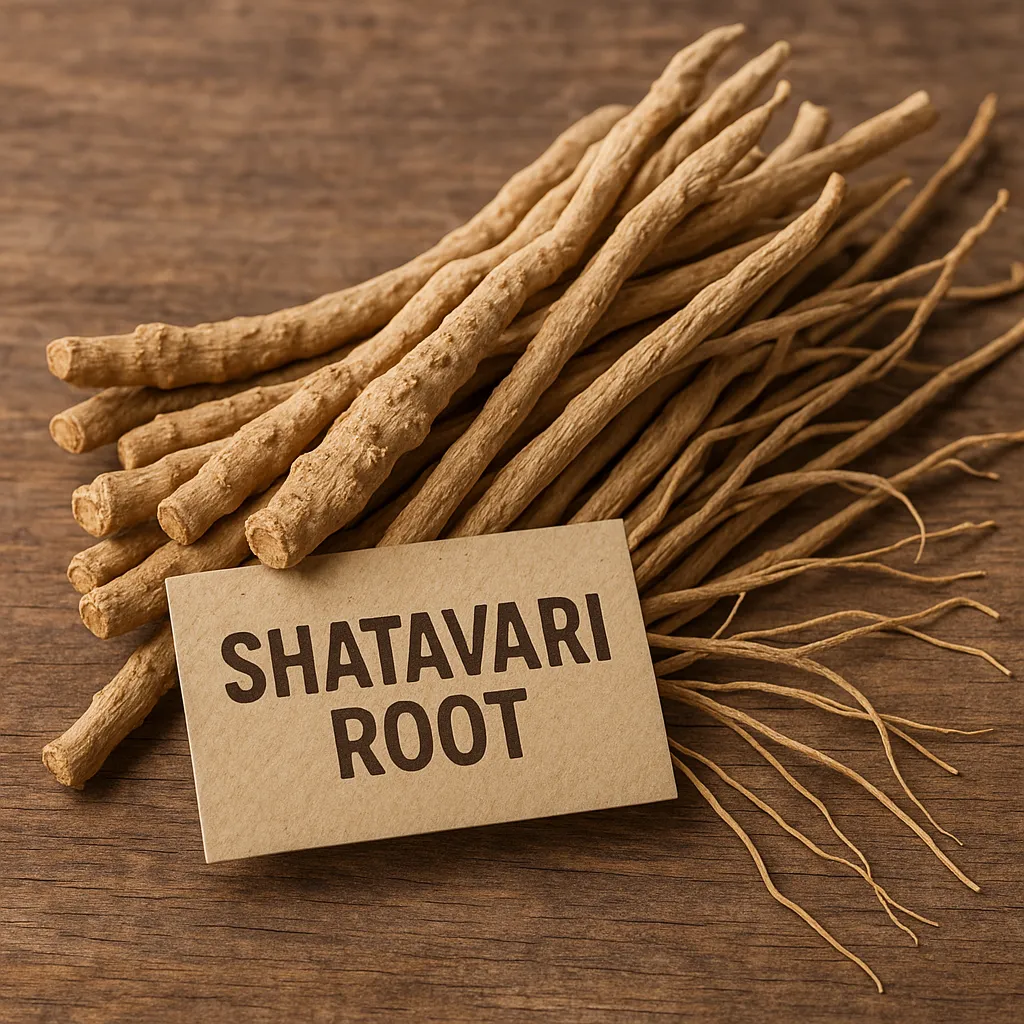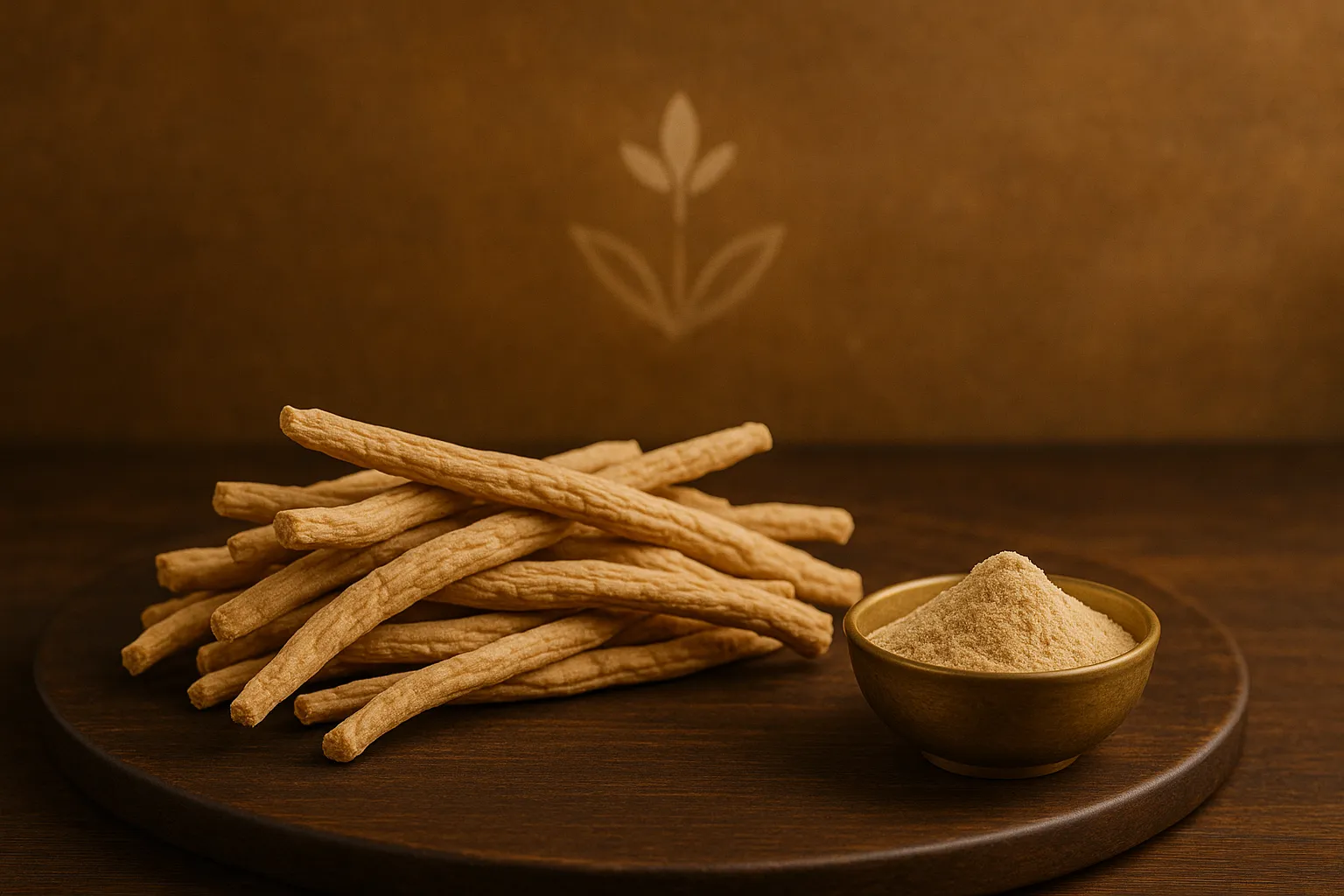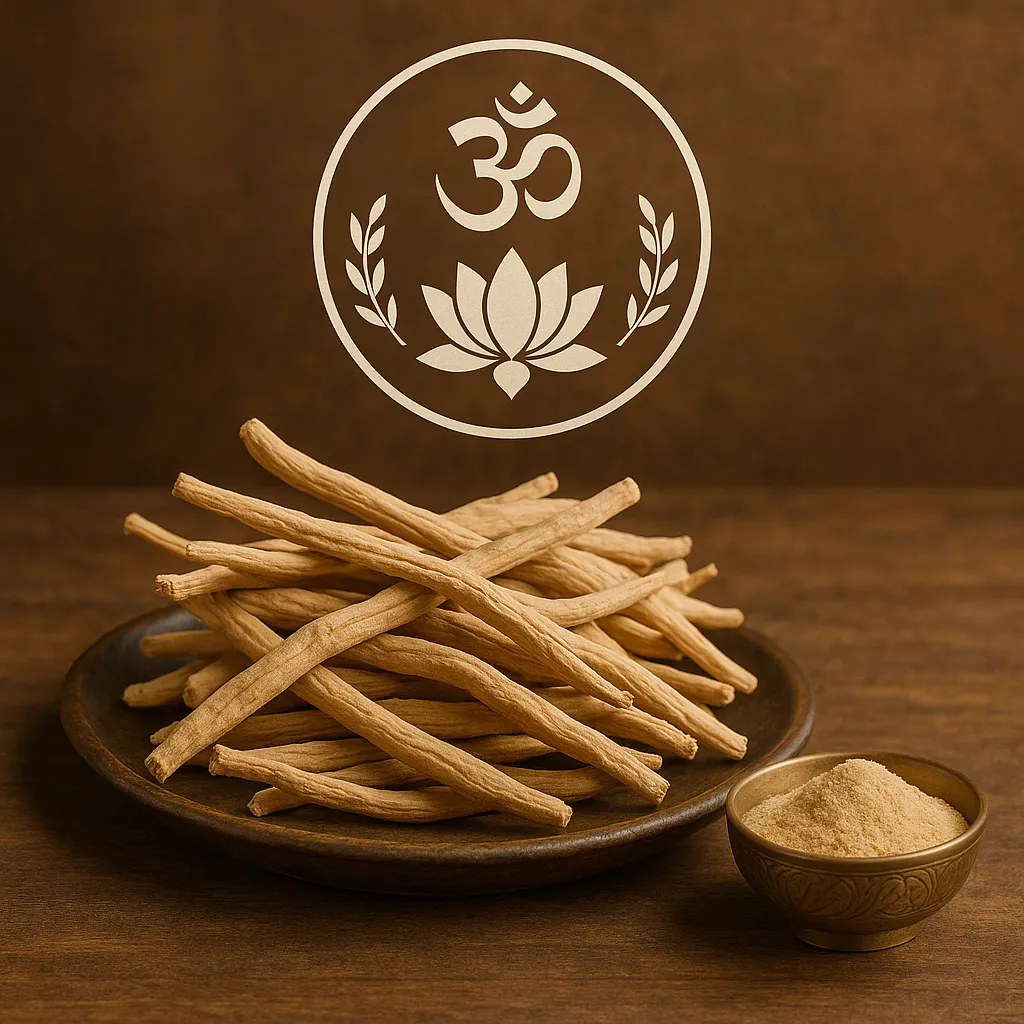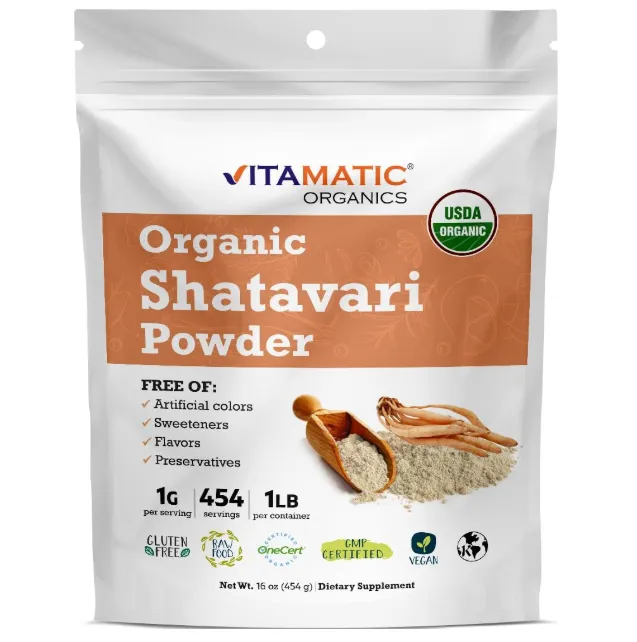What Is Shatavari Root Powder?
Shatavari root powder comes from Asparagus racemosus, a climbing plant in the asparagus family native to India and the Himalayas. The name translates from Sanskrit to “she who possesses a hundred husbands,” reflecting its traditional role in supporting female vitality and reproductive health. The powder is made from the plant's dried roots and contains beneficial compounds including saponins and flavonoids.
Traditional Uses and Benefits
Shatavari is classified as an adaptogenic herb in Ayurveda, used for centuries to help the body manage stress and maintain balance. Traditionally, it has been used to treat digestive problems, coughs, diabetes, nervous disorders, and to gently boost milk supply.
Female Reproductive Health
The herb is especially valued for supporting hormone balance, regulating menstrual cycles, strengthening the uterus, and improving fertility. Research suggests it may help relieve menopause symptoms such as hot flashes and support overall women's reproductive wellness.
Additional Health Benefits
Studies indicate Shatavari may boost immune function, thanks to antioxidants including racemofuran, asparagamine A, and racemosol. Other potential benefits include easing coughs, supporting PCOS management, soothing ulcers, lifting mood, and helping to prevent kidney stone formation.
How to Use It
Shatavari is available as loose powder, capsules, tablets, or liquid extract. The traditional method involves mixing the powder with room temperature water, though you can also blend it into plant-based milk, smoothies, yogurt, or raw desserts. The taste is both sweet and slightly bitter.
Suggested Amounts
- Powder: about 1 teaspoon daily
- Tablets: 500 mg up to twice daily
- Liquid extract: up to 30 drops, up to three times daily
Always consult your healthcare provider when adding herbs to your routine.
Shop NowWhy People Love It
Clinically Supported Benefits
Menopausal Symptom Relief
A 2024 randomized, double-blind, placebo-controlled trial reported significant benefits for perimenopausal women taking Shatavari root extract. After 60 days, participants experienced marked improvements in hot flashes, night sweats, sleep quality, anxiety, and libido compared to placebo, with a 35% lift in overall quality of life scores.
A 2025 study with 75 early perimenopausal participants found that those taking 100 mg daily experienced over 77% improvement in somatic symptoms such as hot flashes, fatigue, and sleep disturbances, plus more than 74% improvement in mood-related symptoms. Researchers also noted measurable shifts in hormone levels, reinforcing hormone-balancing claims.
Mental Health and Stress
The 2024 clinical trial measured depression, anxiety, and stress using the DASS-21 questionnaire. The active group showed statistically significant improvements (p < 0.0001) in all measures by day 60. Depression scores improved from 30.51 to 14, anxiety from 30.34 to 13.6, and stress from 31.89 to 14.97.
Sleep Quality
Using the Regensburg Insomnia Scale, the same study found a 41% reduction in insomnia scores in the active group versus a 19.56% increase in the placebo group.
Immune & Other Benefits
Research shows immunomodulatory properties, with oral administration producing enhanced phagocytic activity and higher antibody levels in animals. Additional studies explore lactation support, antiulcer effects, mood support, and kidney stone prevention.
Synergy with Other Adaptogens
Shatavari pairs beautifully with other Ayurvedic staples. When combined with ashwagandha, its cooling, nourishing qualities balance ashwagandha’s warming energy—together supporting hormone balance, stress resilience, and overall vitality. Formulas often include supportive herbs and spices like giloy, amla, fenugreek, cumin, and cardamom to enhance absorption and comfort.
Choose Shatavari for
- Female reproductive health
- Lactation support
- Digestive ease and cooling relief
- Hormonal balance through menopause
- Moistening dry tissues
Pair Thoughtfully
Layer with ashwagandha for balanced energy and calm, or with warming spices for absorption. Always personalize based on how your body feels and responds.
Safety & FAQs
The FDA does not regulate herbal supplements, so quality and purity can vary. Shatavari may contain traces of sesame, soy, and tree nuts. Consult your doctor before use, especially if you are on medication or managing health conditions.
How does it taste?
Sweet with a lightly bitter finish—easily mixed into smoothies, plant milk, yogurt, or water.
How fast can I feel results?
Adaptogens build benefits with consistent use. Many notice calmer digestion and steadier mood within weeks; hormone balance effects may take longer.
Can I combine it with other adaptogens?
Yes. Shatavari’s cooling nature pairs well with warming herbs like ashwagandha and spices such as fenugreek or cardamom for digestive support.
Is it only for women?
While celebrated for female wellness, its antioxidant, digestive, and immune benefits can support anyone seeking a calm, nourishing adaptogen.
Look Closer



Editorial Highlights
Stay current with research-backed articles, transcripts, and practical tips for using Shatavari in daily life.
Shatavari for Hormone Balance
Evidence-backed guide to Shatavari as a holistic endocrine modulator—covering perimenopause relief, fertility, lactation, dosage, and safety tips.
Read article →Shatavari: Ayurveda’s Premier Reproductive Tonic
Transcript-backed deep dive on hormone balance, mood, digestion, immune support, and why whole-herb Shatavari beats extracts—plus muscle recovery research insights.
Read article →Complete Research-Backed Guide
Explore every detail from traditional roots to modern clinical findings. The full text below mirrors our complete reference guide.
